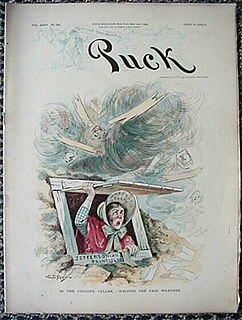Related Research Articles

A metaphor is a figure of speech that, for rhetorical effect, directly refers to one thing by mentioning another. It may provide clarity or identify hidden similarities between two different ideas. Metaphors are often compared with other types of figurative language, such as antithesis, hyperbole, metonymy, and simile. One of the most commonly cited examples of a metaphor in English literature comes from the "All the world's a stage" monologue from As You Like It:

The Tractatus Logico-Philosophicus is a book-length philosophical work by the Austrian philosopher Ludwig Wittgenstein which deals with the relationship between language and reality and aims to define the limits of science. Wittgenstein wrote the notes for the Tractatus while he was a soldier during World War I and completed it during a military leave in the summer of 1918. It was originally published in German in 1921 as Logisch-Philosophische Abhandlung. In 1922 it was published together with an English translation and a Latin title, which was suggested by G. E. Moore as homage to Baruch Spinoza's Tractatus Theologico-Politicus (1670).
In grammar, an intransitive verb is a verb whose context does not entail a direct object. That lack of transitivity distinguishes intransitive verbs from transitive verbs, which entail one or more objects. Additionally, intransitive verbs are typically considered within a class apart from modal verbs and defective verbs.
An idiom is a phrase or expression that typically presents a figurative, non-literal meaning attached to the phrase; but some phrases become figurative idioms while retaining the literal meaning of the phrase. Categorized as formulaic language, an idiom's figurative meaning is different from the literal meaning. Idioms occur frequently in all languages; in English alone there are an estimated twenty-five million idiomatic expressions.
A connotation is a commonly understood cultural or emotional association that any given word or phrase carries, in addition to its explicit or literal meaning, which is its denotation.

Analogy is a cognitive process of transferring information or meaning from a particular subject to another, or a linguistic expression corresponding to such a process. In a narrower sense, analogy is an inference or an argument from one particular to another particular, as opposed to deduction, induction, and abduction, in which at least one of the premises, or the conclusion, is general rather than particular in nature. The term analogy can also refer to the relation between the source and the target themselves, which is often a similarity, as in the biological notion of analogy.
Literal and figurative language is a distinction within some fields of language analysis, in particular stylistics, rhetoric, and semantics.
Inductive reasoning is a method of reasoning in which a body of observations is considered to derive a general principle. It consists of making broad generalizations based on specific observations. Inductive reasoning is distinct from deductive reasoning. If the premises are correct, the conclusion of a deductive argument is certain; in contrast, the truth of the conclusion of an inductive argument is probable, based upon the evidence given.

The watchmaker analogy or watchmaker argument is a teleological argument which states, by way of an analogy, that a design implies a designer, especially intelligent design by an intelligent designer, i.e. a creator deity. The watchmaker analogy was given by William Paley in his 1802 book Natural Theology or Evidences of the Existence and Attributes of the Deity. The original analogy played a prominent role in natural theology and the "argument from design," where it was used to support arguments for the existence of God of the universe, in both Christianity and Deism. Prior to Paley, however, Sir Isaac Newton, René Descartes, and others from the time of the scientific revolution had each believed "that the physical laws he [each] had uncovered revealed the mechanical perfection of the workings of the universe to be akin to a watch, wherein the watchmaker is God."

A red herring is something that misleads or distracts from a relevant or important question. It may be either a logical fallacy or a literary device that leads readers or audiences toward a false conclusion. A red herring may be used intentionally, as in mystery fiction or as part of rhetorical strategies, or may be used in argumentation inadvertently.

Relevance theory is a framework for understanding the interpretation of utterances. It was first proposed by Dan Sperber and Deirdre Wilson, and is used within cognitive linguistics and pragmatics. The theory was originally inspired by the work of Paul Grice and developed out of his ideas, but has since become a pragmatic framework in its own right. The seminal book, Relevance, was first published in 1986 and revised in 1995.
Comedic device refers to a kind of device used to make a statement more humorous. In layman's terms, it is what makes things funny.
The Secondary School Admission Test (SSAT) is an admission test administered by The Enrollment Management Association in the United States to students in grades 3–11 to provide a standardized measure that will help professionals in independent or private elementary, middle, and high schools to make decisions regarding student test taking.
The problem of religious language considers whether it is possible to talk about God meaningfully if the traditional conceptions of God as being incorporeal, infinite, and timeless, are accepted. Because these traditional conceptions of God make it difficult to describe God, religious language has the potential to be meaningless. Theories of religious language either attempt to demonstrate that such language is meaningless, or attempt to show how religious language can still be meaningful.
A literary trope is the use of figurative language, via word, phrase or an image, for artistic effect such as using a figure of speech. Keith and Lundburg describe a trope as, "a substitution of a word or phrase by a less literal word or phrase." The word trope has also come to be used for describing commonly recurring literary and rhetorical devices, motifs or clichés in creative works. Literary tropes span almost every category of writing, such as poetry, film, plays, and video games.
Argumentum a fortiori is a form of argumentation that draws upon existing confidence in a proposition to argue in favor of a second proposition that is held to be implicit in, and even more certain than, the first.

"A Good Man Is Hard to Find" is a Southern gothic short story first published in 1953 by author Flannery O'Connor who, in her own words, described it as "the story of a family of six which, on its way driving to Florida [from Georgia], gets wiped out by an escaped convict who calls himself the Misfit"."
Argument from analogy is a special type of inductive argument, whereby perceived similarities are used as a basis to infer some further similarity that has yet to be observed. Analogical reasoning is one of the most common methods by which human beings attempt to understand the world and make decisions. When a person has a bad experience with a product and decides not to buy anything further from the producer, this is often a case of analogical reasoning. It is also implicit in much of science; for instance, experiments on laboratory rats typically proceed on the basis that some physiological similarities between rats and humans entails some further similarity.
Sam Glucksberg is a Canadian professor in the Psychology Department at Princeton University in New Jersey, known for his works on figurative language: metaphors, irony, sarcasm, and idioms. He is particularly known for manipulating the Candle Problem experiment which had participants figure out the best way to erect a candle on a wall. Along with performing experiments, Glucksberg has also written Understanding Figurative Language: From Metaphors to Idioms, published by Oxford University Press in 2001.
References
- ↑ "SPCH 1100 Chapter 8 Notes". Archived from the original on 2011-09-27. Retrieved 2010-03-26.
- ↑ Garssen, Bart (2009). "Comparing the Incomparable: Figurative Analogies in a Dialectical Testing Procedure". Argumentation Library. 14: 133–140. doi:10.1007/978-1-4020-9165-0_10. ISBN 978-1-4020-9164-3.